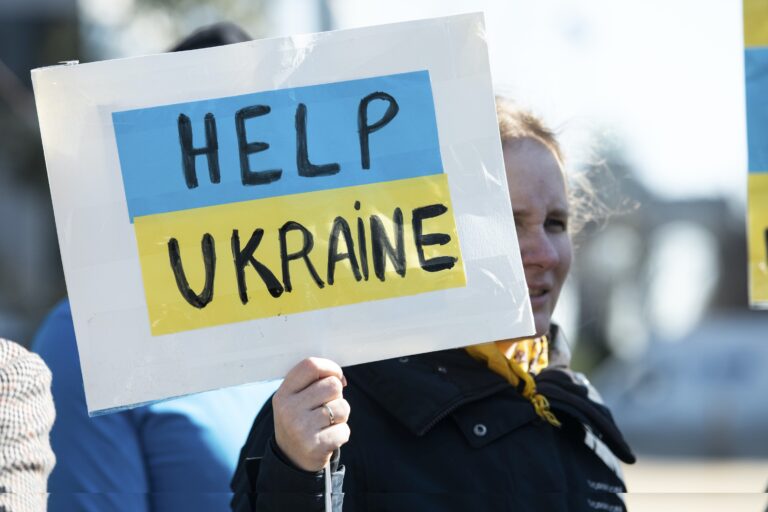
Women’s rights and international law
Author: Ukrainian YEA Anna Protsai
As we know, in these disturbing times it is important to ensure that law and order is observed worldwide. I have been studying international law at university, and I want to reflect on one important aspect: how international law ensures women’s rights and why we need it.
International law is also aimed at protecting human rights, and this branch is called international human rights law. I think there is no need to explain that women’s rights are human rights. People seem to know but still some ask questions like:
Why do we need separate international treaties for the rights of women? The answer is:
Because women still face discrimination. The Universal Declaration of Human Rights and related general human rights instruments are not enough. This is the same reason we have international instruments for children’s rights and others. As a female international lawyer, I feel honour and pride to write about this topic. So, here I list the main international treaties that specifically take care of women’s rights:
This is a key international treaty addressing gender-based discrimination and providing specific protections for women’s rights, and is ratified by 188 states.
The Convention sets out an international bill of rights for women and girls, and defines what obligations states have to make sure that women can enjoy those rights. I find this Convention extremely important as it is very comprehensible and explicitly acknowledges in its preamble that extensive discrimination against women continues to exist, emphasising that such discrimination violates the principles of equality of rights and respect for human dignity. It has 30 articles, just like the Universal Declaration of Human Rights.
This was approved by the United Nations General Assembly during the 409th plenary meeting, on 20 December 1952, and adopted on 31 March 1953.
The Convention’s purpose is to codify a basic international standard for women’s political rights (right to vote, right to to hold public office, etc.). Article 1 of the Convention says: “Women shall be entitled to vote in all elections on equal terms with men, without any discrimination.” This sounds like basic and well-accepted custom but unfortunately needs to be enshrined in a separate legal instrument.
This was passed by the United Nations General Assembly in 1957 and entered into force in 1958, and has 74 state parties.
This allows women to adopt the nationality of their husband based upon the woman’s own decision, but does not require it. This Convention is particularly important as it diminishes any disputes and misunderstandings that may arise when people of different nationalities marry.
This is a human rights treaty of the Council of Europe opposing violence against women and domestic violence which was opened for signature on 11 May 2011, in Istanbul, Turkey. The convention aims at the prevention of violence, victim protection and to end the impunity of perpetrators. It was signed by 45 states as well as the EU. This Convention is particularly important as it outlines different types of violence against women and how states can address this violence. I find this Convention a breakthrough in modern international law.
Women’s rights are also regulated at the regional level, for example in the Americas with the Inter-American Convention on the Granting of Civil Rights to Women; Inter-American Convention on the Granting of Political Rights To Women; Inter-American Convention on the Nationality of Women; Inter-American Convention on the Prevention, Punishment and Eradication of Violence Against Women.
I have been lucky enough in my personal life and career not to face any gender discrimination in Ukraine. But I am fully aware that such cases can happen and this is the reason we need legislation codifying women’s rights specifically. This is why I have been studying women’s rights within international human rights law at the University. Women’s rights are human rights and I have a passion for studying this topic. Ukraine is a party to general international human rights treaties like the Universal Declaration of Human Rights, the European Convention of Human Rights, the International Covenant on Civil and Political Rights, and regional treaties like the Istanbul Convention that is protecting women’s rights specifically. We need to be aware about women’s rights 365 days a year and not just on 8 March.
More campaign pages:
Interested in the latest news and opportunities?
This website is managed by the EU-funded Regional Communication Programme for the Eastern Neighbourhood ('EU NEIGHBOURS east’), which complements and supports the communication of the Delegations of the European Union in the Eastern partner countries, and works under the guidance of the European Commission’s Directorate-General for Neighbourhood Policy and Enlargement Negotiations, and the European External Action Service. EU NEIGHBOURS east is implemented by a GOPA PACE-led consortium. It is part of the larger Neighbourhood Communication Programme (2020-2024) for the EU's Eastern and Southern Neighbourhood, which also includes 'EU NEIGHBOURS south’ project that runs the EU Neighbours portal.

The information on this site is subject to a Disclaimer and Protection of personal data. © European Union,




